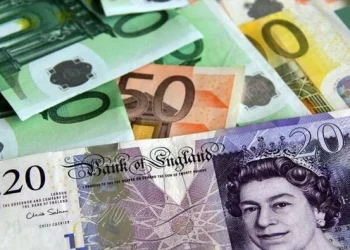The Bank of England’s financial stability watchdog is closely monitoring the global repercussions of the US dollar’s sharp decline, triggered by President Donald Trump’s sweeping tariff measures that have rattled markets and investor confidence.
Sam Woods, head of the Prudential Regulation Authority (PRA) and a deputy governor at the Bank of England, told the Treasury Select Committee on Tuesday that the dollar’s perceived safe-haven status has been undermined by the opening salvos of Trump’s global trade war. “This has created a bit of a dent, I think, in the way the US is seen both by regulators and investors,” Woods stated.
The Bank is now actively evaluating how the UK’s financial system might respond to a sustained decline in demand for US dollar-denominated assets, including US Treasuries. “We’re asking ourselves the question, what would happen if there was a more fundamental drop in appetite for dollar-denominated assets, or US assets, or Treasuries,” Woods added. “It is a difficult question to answer, but it is what we’re doing.”
The dollar, which traditionally strengthens during global crises due to its safe-haven appeal, has lost ground rapidly since April 2, dropping nearly 7.7%—on track for its worst two-month performance in over two decades. Although reports suggesting a potential easing of tariffs on China have offered temporary support, volatility remains high.
US Treasury yields have mirrored the dollar’s instability, with the 10-year yield climbing from 4.2% in early April to nearly 4.5% mid-month before retreating. Meanwhile, the S&P 500 index is poised to extend its losses after two consecutive months of declines.
The Bank of England holds significant dollar reserves to safeguard financial stability, and Woods emphasized that ongoing UK-US financial cooperation remains likely. However, he noted that recent geopolitical strains may have drawn European allies into closer alignment. “One byproduct of these events is that the warmth [with the EU] is increasing quite considerably, so that is actually a good thing,” he remarked.
Woods also addressed uncertainty surrounding leadership in key US regulatory bodies. Three pivotal financial agencies—responsible for oversight of sectors such as energy and securities—are still awaiting confirmation of new appointments. “Until they are confirmed and we can engage properly, the jury is still a little bit out,” he said.
Despite the growing instability, Woods expressed confidence that the US would maintain adherence to international Basel banking regulations. He also confirmed that the Bank of England had not yet instructed UK banks to begin daily liquidity reporting—a measure typically reserved for heightened market stress—but had increased monitoring efforts.
“What we’ve done is step up monitoring of the firms, which we always do in these situations. We’ve not taken it to the highest level,” Woods concluded.
Related Topics:























